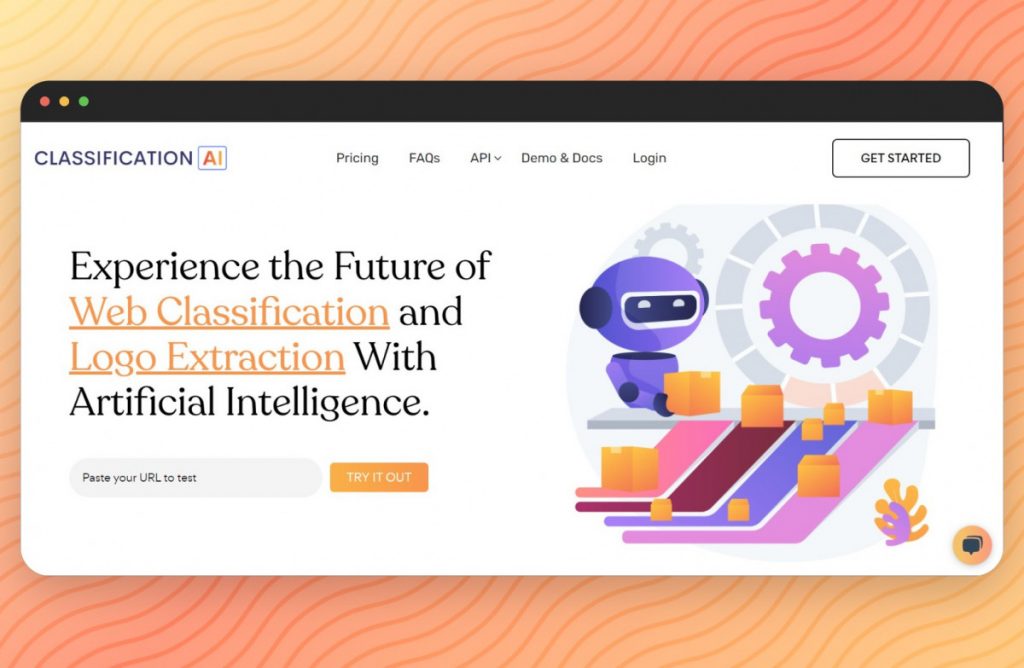In today’s digital landscape, the internet is a vast and ever-expanding space. With billions of websites and web pages available, finding relevant information can be a daunting task. This is where Web Classification API comes into play. These powerful tools utilize advanced algorithms and machine learning techniques to classify websites based on their content, allowing users to quickly and accurately find the information they need. In this article, we will explore some of the key usage cases for Web Classification API.
What is a Web Classification API?

A Web Classification API is an application programming interface that categorizes websites based on their content. It analyzes the textual and visual elements of a web page and assigns it to one or more predefined categories. This classification process is performed using sophisticated algorithms that have been trained on vast amounts of data. Web Classification API enable users to search, filter, and organize the web efficiently.
Usage Case 1: Content Filtering and Parental Control
One of the primary applications of Web Classification API is content filtering and parental control. With the ever-increasing presence of explicit or inappropriate content on the internet, it is crucial to protect users, especially children, from accessing such material. Web Classification APIs can analyze the content of websites and classify them into categories such as adult content, violence, gambling, or drugs. This allows parents or system administrators to block or restrict access to specific categories, ensuring a safe browsing experience.
Usage Case 2: Ad Placement and Targeting
In the world of digital advertising, precise targeting is key to reaching the right audience. Web Classification APIs can play a vital role in this process by categorizing websites based on their content and enabling advertisers to place their ads on relevant platforms. For example, a sports equipment brand can use a Web Classification API to identify websites related to sports, fitness, or outdoor activities. This ensures that their ads are displayed to users who are more likely to be interested in their products, resulting in higher conversion rates and a better return on investment.
Usage Case 3: Market Research and Competitive Analysis
Understanding the online market and competitors is essential for businesses to stay ahead of the curve. Web Classification API can assist in market research and competitive analysis by categorizing websites based on industry, niche, or specific topics. This allows businesses to gain insights into market trends, identify potential competitors, and analyze their strategies. By leveraging Web Classification APIs, businesses can make data-driven decisions and adapt their marketing and sales strategies accordingly.
Usage Case 4: News Aggregation and Content Recommendation
With the abundance of news and information available online, it can be overwhelming for users to stay updated on the topics they are interested in. Web Classification APIs can help solve this problem by categorizing news websites and articles based on their content, such as politics, sports, technology, or entertainment. This enables news aggregation platforms and content recommendation systems to provide personalized news feeds and recommendations to users, ensuring that they receive relevant and tailored information.
Usage Case 5: Search Engine Optimization (SEO)
Search Engine Optimization (SEO) is crucial for businesses to improve their visibility and reach online. Web Classification APIs can be used to analyze and categorize websites based on their content, keywords, and metadata. This information can then be utilized to optimize website content, structure, and keyword targeting. By understanding how search engines classify websites, businesses can improve their SEO strategies and increase their chances of ranking higher in search engine results.
Usage Case 6: Fraud Detection and Security
Web Classification APIs can also be utilized for fraud detection and security purposes. By categorizing websites based on their content and analyzing patterns, Web Classification APIs can identify suspicious or malicious websites. This can help in detecting and preventing phishing attacks, malware distribution, or other cyber threats. By integrating Web Classification APIs into security systems, businesses and individuals can enhance their online safety and protect themselves from potential risks.
To make use of it, you must first:

- Go to Web Classification API and simply click on the button “GET STARTED” to start using the API.
- After signing up in Classification.ai, you’ll be given your personal API key. Using this one-of-a-kind combination of numbers and letters, you’ll be able to use, connect, and manage APIs!
- Employ the different API endpoints depending on what you are looking for.
- Once you meet your needed endpoint, make the API call by pressing the button “Run” and see the results on your screen.
In conclusion, Web Classification APIs offer a wide range of applications and benefits in today’s digital world. From content filtering and parental control to ad placement and targeting, market research, news aggregation, SEO, and fraud detection, these powerful tools enable users to efficiently navigate the vast landscape of the internet. As technology continues to advance, we can expect Web Classification APIs to become even more sophisticated and accurate, further enhancing their usability and impact.
Read More: Real time categorization api for development purposes

